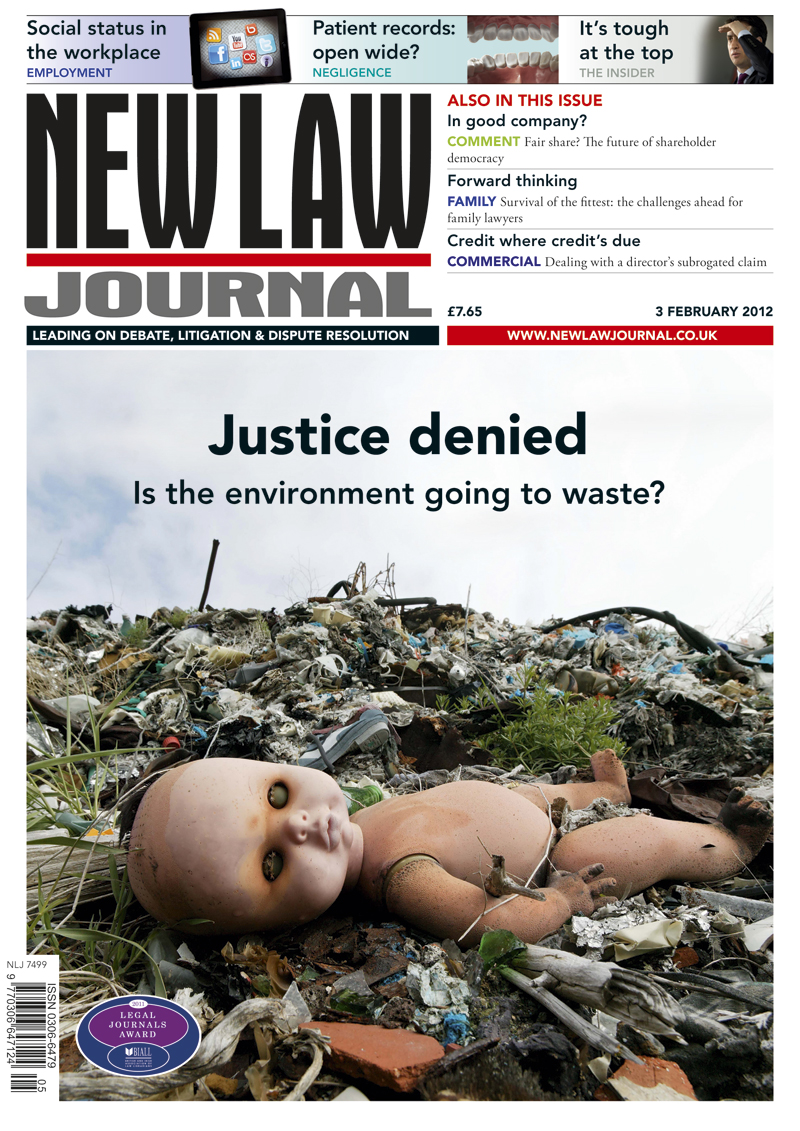
Use of secret evidence in civil cases could render some claims untriable
What does the future hold for shareholder democracy, asks David Greene
Stephen Hockman QC condemns government manoeuvres to restrict affordable access to environmental justice
Abolishing the DRA has the potential to inflict long-term damage to UK Plc: Catherine Barnard & Simon Deakin
Melanie Lane, Catherine Taylor, Anna Caddick & Libby Payne tackle the pitfalls of social media in the workplace
Family lawyers must adapt to survive in the year ahead, says Geraldine Morris
When does public interest trump patient consent, asks James Penry-Davey
Should the community infrastructure levy fund superfast broadband, ask Malcolm Dowden & Jen Hawkins
Is the fairytale over for Brent Libraries, asks Nicholas Dobson
Dealing with a director’s subrogated claim is not straightforward, says Simon Duncan
MOVERS & SHAKERS

Jurit LLP—Caroline Williams
Private wealth and tax team welcomes cross-border specialist as consultant
.tmb-mov69x69.jpg?sfvrsn=961ae4db_1)
HFW—Simon Petch
Global shipping practice expands with experienced ship finance partner hire
95ca96e3d47f4eff8d147c4f0df17c77.tmb-mov69x69.png?sfvrsn=3db5d86b_1)
Freeths—Richard Lockhart
Infrastructure specialist joins as partner in Glasgow office






